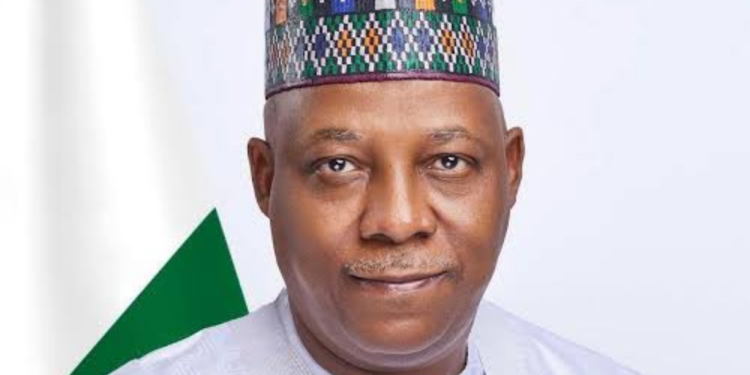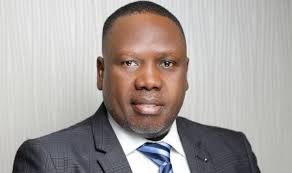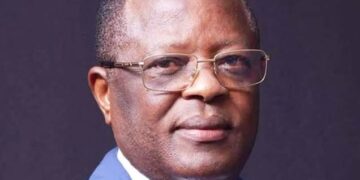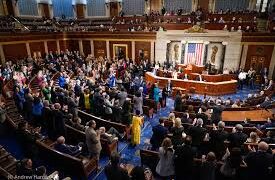Nigeria’s film industry received a significant boost as Vice President Kashim Shettima pledged the federal government’s support for the country’s Oscar submission, Mai Martaba. The Vice President announced access to the $618 million Investment in Digital and Creative Enterprises Programme (iDICE) for creators during a strategic meeting with the film’s team at the Presidential Villa, Abuja. The meeting was led by the Minister of Arts, Culture, Tourism, and Creative Economy, Barrister Hannatu Musawa.
In his statement, Shettima highlighted the importance of backing Mai Martaba, a film selected as Nigeria’s entry for the 2025 Academy Awards in the Best International Feature Film category. He emphasized that the movie’s campaign could serve as a unifying force for the nation, bringing together diverse ethnic groups and showcasing Nigeria’s cultural vibrancy. “We will make sure that the kaleidoscope representing all the colours in our nation is carried along. Let’s fuse into one and support this project,” he remarked.
The Vice President reiterated his commitment to the success of Nigeria’s creative industry, affirming that the federal government will mobilize all necessary resources for the campaign. “By the end of the century, Nigeria will be the most populous nation on earth. There is beauty in numbers. I want to reiterate my unflinching support for us to get the Oscars,” he added.
The Minister of Arts, Culture, Tourism, and Creative Economy, Hannatu Musawa, elaborated on ongoing efforts to bolster Nigeria’s creative industry. She shared that the ministry has been actively securing partnerships with international investors and signing co-production agreements with countries like South Korea, the UK, Japan, China, and France. “We’re working with investors who have already committed to building the creative industry. We hope to establish a media city, a one-stop shop for nine sectors across the entire industry,” Musawa revealed.
Addressing funding challenges in the industry, Musawa noted that a lack of infrastructure often hampers the production of high-quality films. She stressed that access to resources like the iDICE fund would empower filmmakers to create world-class content. “The reality is that many in the industry do not have the infrastructure needed to produce first-class movies. However, every Nigerian, even from rural settings, has the potential to create content and secure a future in this industry,” she said. The iDICE project, valued at $618 million, is part of the federal government’s strategy to boost digital and creative industries, providing essential funding and support to filmmakers and content creators.
Prince Daniel, the director of Mai Martaba, highlighted the economic contributions of the creative industry, noting its significant impact on Nigeria’s GDP. “Broadcasting contributes more to the GDP than oil does. In April 2020, the creative industry and broadcasting surpassed oil and mining combined, creating over 500 jobs and providing work for nearly 100 people,” Daniel said.
He emphasized the importance of federal government support in the Oscar campaign, citing the need for high-level lobbying and diplomatic efforts to secure a nomination. “For every country aspiring for an Oscar, government backing is crucial. It’s not just about the financial cost; it’s about the diplomatic push needed to be seen and considered,” he remarked.
Drawing a comparison with South Africa’s Tsotsi, which won the Oscar for Best Foreign Language Film in 2006, Daniel noted the transformative impact such recognition can have on a country’s film industry. “Look at what Tsotsi did for South Africa. It opened up their industry to global opportunities. Nigeria has the talent and stories; now we need the platform and the push to break into that space,” he said.
Stephanie Linus, Chairperson of the Nigerian Official Selection Committee (NOSC) for the Oscars, echoed this sentiment, stressing the long-term benefits of global recognition for Nigerian cinema. “This is not just about international recognition but about building our presence on the global stage now. The Oscars represent the biggest platform for celebrating cinema, and we need to be part of that conversation,” Linus stated. She emphasized the need for Nigeria to leverage its storytelling prowess and invest in quality productions that can compete on an international level.
The film Mai Martaba, directed by Prince Daniel, delves into themes of power, love, and female leadership in an ancient African kingdom. Its selection as Nigeria’s entry for the Oscars underscores the growing recognition of Nollywood’s storytelling and production capabilities. The federal government’s backing, combined with the strategic partnerships and financial support announced, positions Nigeria as a formidable contender in the international film arena.





































